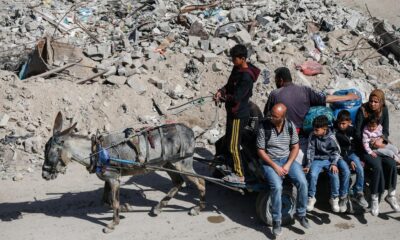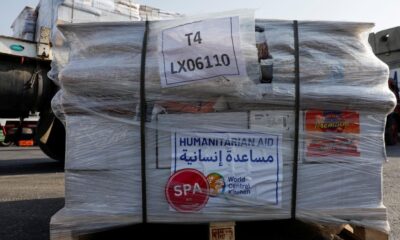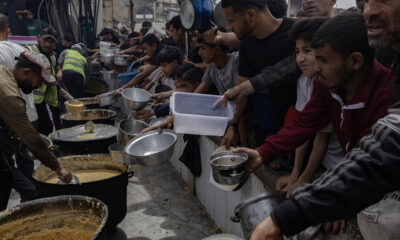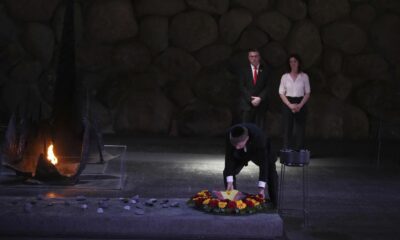On February 10, 2024, Abdul was hoping to find food for his family amid the devastation in northern Gaza. “I wanted to surprise my mum with some salt or flour,” he recounted later to my colleagues. But as the 15-year-old scoured abandoned homes, he was grievously injured during an Israeli airstrike. His leg shattered, Abdul crawled for more than an hour through the chaos, missiles falling around him. Alone and terrified, his cries for help went unanswered until someone finally carried his fragile wounded body to the nearest functioning hospital. Even there, his suffering did not end. With hospitals overwhelmed with casualties and critical supplies lacking, doctors were forced to perform surgery on Abdul without anaesthesia.
After receiving emergency surgery in Gaza, Abdul was one of the very few Palestinian patients who was allowed to be evacuated from the war zone for medical reasons: first to Egypt, and then to a reconstructive surgery hospital of MSF (Médecins Sans Frontières/Doctors Without Borders) in Amman, Jordan. Seven months later, he is learning to walk again with crutches.

Unfortunately, Abdul’s story is just one among thousands. More than 10 children per day on average lost one or both legs during the first three months of Israel’s assault on Gaza, according to Save the Children. As devastating and distressing as Abdul’s story is, it is one of the very few stories with a hopeful ending: he is alive and getting access to treatment.
The grim reality in Gaza
Israel’s blockade, which has suffocated Gaza for 16 years, has turned into an outright nightmare during the past 12 months. Since October 2023, more than 41,000 people have been killed, and according to the World Health Organization, an estimated 12,000 are in desperate need of medical evacuation. Yet, only 41% of medical evacuation requests have been approved by Israel. This is not just a logistical challenge; it is a denial of the basic human right to healthcare. For those lucky enough to be evacuated, as Abdul was, survival often means months of painful recovery — a luxury many still trapped in Gaza cannot afford. Thousands of displaced people are unable to access medical care due to destroyed health facilities, restricted movement, and the extremely dangerous conditions on the ground.
We have borne witness to the devastation this violence has wrought on Gaza’s health infrastructure. Of Gaza’s 36 hospitals, 17 are now out of service. Over 500 attacks have targeted healthcare facilities, crippling the capacity to provide essential care. Our teams have watched patients die on hospital floors as overwhelmed staff struggle to cope with the flood of the wounded. Essential supplies, such as oxygen concentrators for anaesthesia, vital surgical equipment, and generators, have been delayed or blocked by Israeli authorities repeatedly. Without these vital resources, life-saving surgeries have become nearly impossible, leading to thousands of otherwise preventable deaths.
Psychological wounds
The war’s toll extends beyond physical injuries — it has inflicted deep psychological wounds on Gaza’s population. Children like Abdul and Karam, a 17-year-old who suffered severe burns in an airstrike that killed 13 members of his family, are physically and emotionally scarred. According to UNICEF, over one million children in Gaza now need urgent mental health and psychosocial support. Even as aid and healthcare workers tirelessly support these children, the trauma of living through constant bombardment, witnessing death, destruction, and enduring displacement will affect them for decades to come, if they are fortunate enough to survive the brutality of the aggressions.
Violation of international humanitarian law
The ongoing violence and the Israeli blockade represent a gross violation of international humanitarian law, its principles completely disregarded and violated. An immediate and sustained ceasefire is the only viable solution to meet Gaza’s overwhelming medical and humanitarian needs. Without this, more lives will be lost, and this war will leave yet another indelible stain on our collective conscience.

All parties need to guarantee safe passage for humanitarian assistance inside Gaza, which requires the opening of essential land borders, including the Rafah crossing. Equally crucially, there should be immediate medical evacuation of those whose lives depend on it, along with their caregivers. Safe, voluntary, and dignified return to Gaza for all patients and their caregivers must be ensured.

Abdul’s story is not just a statistic— it is a harrowing reminder of the real human cost of this war. No child should have to crawl through the rubble for survival, yet thousands of Palestinian children face this unimaginable horror. The suffering in Gaza needs to end. Governments must act now to secure a ceasefire, ensuring displaced populations have access to the healthcare they desperately need to survive and rebuild their lives. This is not just a humanitarian issue. It is a global moral imperative.
Farhat Mantoo is Executive Director at Médecins Sans Frontières (MSF)/Doctors Without Borders, South Asia
Published – October 05, 2024 01:08 am IST







































